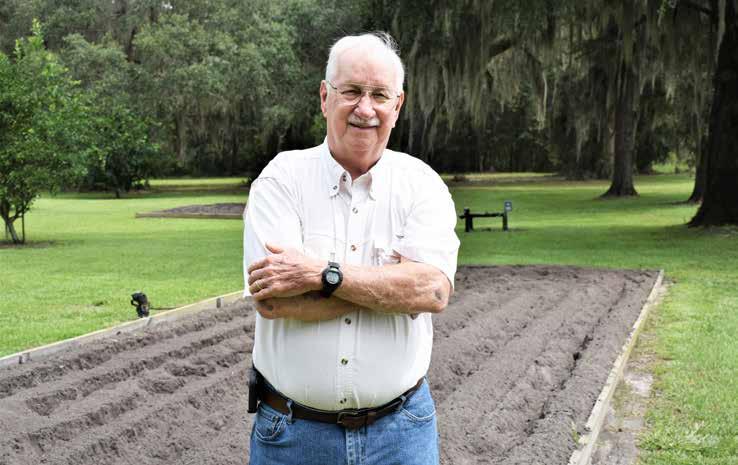H E A LT H
P
IT TAKES TO KNOW ONE ONE
W
hen describing his passion for starting The Migraine and Spine Clinic in Valdosta, Joshua “Josh” Batson states simply, “I am a ‘migrainer.’ My brother and sister are ‘migrainers’. I married a ‘migrainer.’ Migraines have always been a part of my life in one way or another.” With a Masters of Science in Nursing from Valdosta State University and training that is a “…hybrid of primary care and neurology,” Josh wanted to help patients, like his wife, who have struggled with migraines all their lives. That is what drove him to start his practice. As much as he loves it now, it wasn’t where he thought he’d end up. Josh grew up in small town near Lake City, Florida. During high school he worked at the Texas Roadhouse restaurant in Lake City and his first few years in college. He became a manager and was eventually transferred to Valdosta, which is where he met his wife. While attending graduate school he worked as a registered nurse in the cardiac intensive care unit at South Georgia Medical Center. His plan was to be a nurse practitioner for a cardiologist there when he graduated. Those plans changed when he interned with a neurologist during his last semester. Besides, he says, “God had other plans.” “My formal training program was geared toward primary care. My on-the-job training after graduation was in general neurology,” Josh explains. “In primary care you see a lot of headache conditions and mild to moderate back and neck pain.
Joshua Batson, NP-C, of the Migraine & Spine Clinic, Knows about Migraines Because He is a “Migrainer” Himself
Those are some of the most common reasons people seek professional medical help. Headaches, migraines, and sciatica pain also cross over into neurology in some cases. My training and my personal experiences with these conditions make me the ideal provider to see patients with these kinds of conditions.” Josh is committed to customizing each treatment plan to the patient and their lifestyle versus fitting patients into a “treatment box.” “There are no tests to diagnose migraines. You have to go on what the patient tells you,” he explained. The opioid epidemic doesn’t help matters any when treating migraine patients. “When a patient says they are in pain with no visible signs it can cause providers to be reluctant to treat the pain. This creates an environment of mistrust on both sides and, as a result, some patients are commonly undertreated or choose not to seek professional help at all,” he said. “Spine conditions can be similar but some migraines and back conditions can be treated with simple injections and nonopioid medications.” As committed as Josh is to his practice and helping his patients find relief and get back to their daily lives, he is just as committed to continuing putting down roots here in Valdosta. Having lived half his life in Valdosta, he says, “I couldn’t imagine raising my family and practicing anywhere else.” With five girls from the ages of two – twenty years old, it might be hard to uproot the family even if he wanted to.
KNOW YOUR “TRIGGERS” To reduce migraines or neck and back pain – it helps to figure out what causes it. Migraines are a trigger disorder. This means that something “triggers” or starts the migraine process. It can be bright sunlight, a strong perfume/cologne, or stress. They are not the same for everybody. Effective migraine management correlates a lot of the time with effective trigger management. That is similar for neck and back pain. When urgent care visits for sciatica increase, nine out of ten patients over did it in their yard doing a spring cleanup! My advice? Spread the work out, don’t try to get your yard ready for spring and summer all in one afternoon!
Josh with his wife, Christine, and their five daughters, Kallee (20), Lily (14), Natalie, (7), Henley (4), and Lucy (2).
If you are having frequent migraines or flare ups of neck and back pain, you should see a medical provider…and…Know your triggers! Summer 2020
55

















